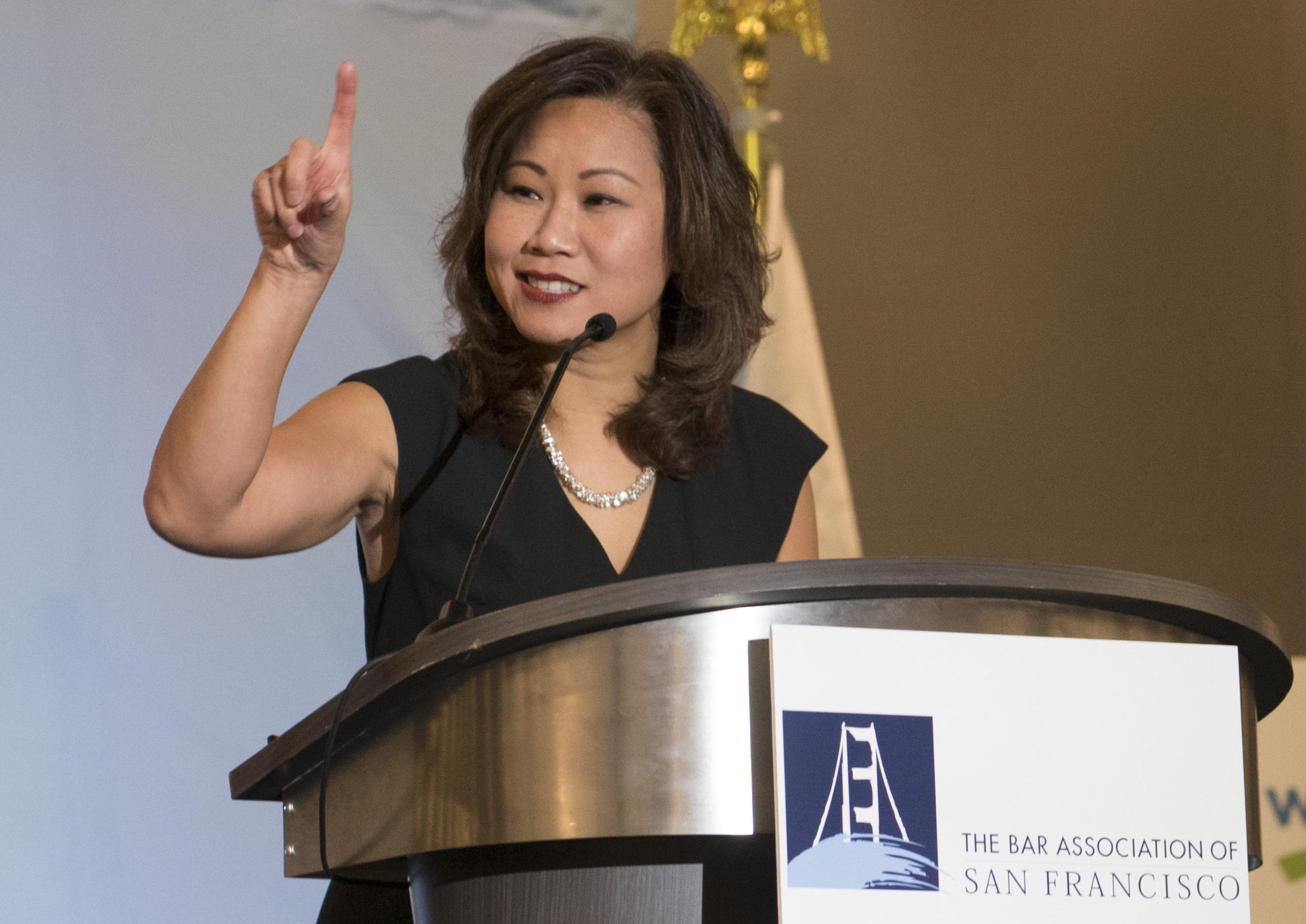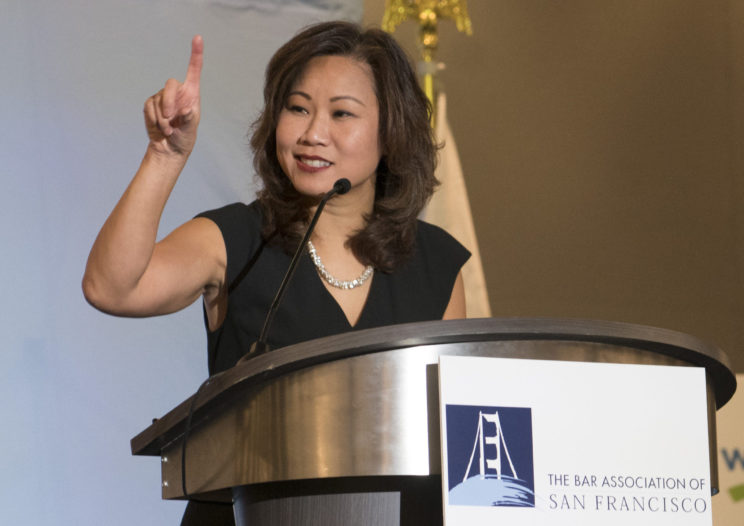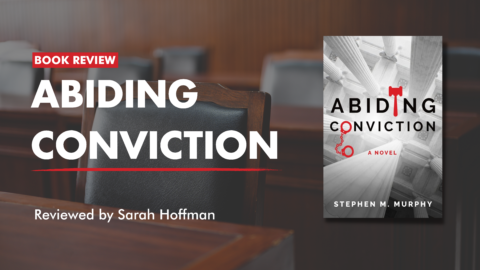
Doris Cheng concluded her year as 2019 Bar Association of San Francisco (BASF) board president by hosting the third installment of her Women in Trial initiative. Cheng, widely recognized as a trial lawyer advocacy skills trainer, devoted this last training to women working as court-appointed counsel in San Francisco’s juvenile dependency and juvenile delinquency courts.
The two-day training, Advanced Trial Skills for Dependency and Delinquency Panel Lawyers, was tailored to the unique needs of attorneys deep in the trenches of juvenile court. Instead of the typical training curriculum, Cheng worked from a child abuse fact pattern so that the attorneys would be honing their skills using a unique set of facts they encounter on a day-to-day basis. Cheng also incorporated sessions on the use of expert witnesses. This advanced-level training was necessary to fit the needs of the participants, for whom trials are a routine part of their practice. The experience level of the lawyers ranged from seven to thirty years. As senior attorney Edna Henley explained: “I’ve been representing children in dependency court since before formal representation for children existed–about thirty-five years.”
Needless to say, there was some question as to whether a polished, high-profile litigator like Cheng had anything to teach these veterans of an obscure area of law serving the most marginalized members of our community. Those questions vanished a few minutes into Cheng’s unrehearsed closing argument. Captivating the room, Cheng effortlessly wove together the familiar facts of a juvenile dependency case—a baby with unexplained and seemingly intentional injuries—into a compelling narrative of an innocent mother being wrongly separated from her child. Later Henley said, “I didn’t really think I would get much out of this. Boy was I wrong! Even at my age, I came away with a lot of new skills.”
“I didn’t really think I would get much out of this. Boy was I wrong! Even at my age, I came away with a lot of new skills.”
Keker, Van Nest & Peters generously provided conference rooms, hospitality, and technical support throughout the two-day program. For court-appointed counsel, the space created the climate of a luxury retreat, an environment rarely experienced by attorneys who typically meet with clients in public housing, run-down school meeting rooms, or substance abuse rehabilitation facilities.
Cheng recruited the highest-caliber trial trainers, including the Honorable Monica J. Wiley, the Supervising Judge of the Unified Family Court; and the Honorable Linda Colfax, who spent her second year on the bench presiding over dependency court proceedings. This all-star faculty team also included litigators from prestigious corporate firms: Michael Kelly from Walkup, Melodia, Kelly & Schoenberger; Geoff Gordon-Creed of Gordon-Creed, Kelley, Holl & Sugarman; Nancy Pritikin of Sheppard Mullin; Michon Spinelli of Ropers Majeski Kohn Bentley; and Maureen Harrington of Greenfield Southwick. Cheng expressed her gratitude for her faculty: “I am grateful and humbled by their generosity, energy, and sage wisdom. It was an extraordinary program, making a difference for people who will immediately apply the different techniques they learned.”
The feedback from the participants reinforced this idea. Delinquency attorney Sidney Hollar said, “I can’t thank Doris enough for organizing the women’s trial skills training. I learned so much from each of the leaders. The practice sessions were intimidating, but very helpful exercises. Yesterday, I had a Dennis H. hearing and used what I learned from the impeachment training. The training also gave me more confidence.” Mariko Nakanishi from the dependency panel reflected these same sentiments: “It was challenging, inspiring, and helpful all at the same time.”
Judge Colfax summed up the event: “I so enjoyed having the opportunity to learn and teach with such incredible trial attorneys … I also felt inspired to see how many dependency and delinquency attorneys showed up to improve their skills and hone their craft … these lawyers devote their lives to serving families in need of services and legal assistance, all for a pay substantially below what most attorneys earn.”
Ultimately, the event was the hallmark of BASF at its best: cultivating the legal community’s wealth of resources to invest in our public service lawyers. This in-depth training provided the opportunity for professionals from very different backgrounds to truly appreciate and value each other’s work, form connections, and build a more powerful legal community. Judge Wiley envisions this as the beginning of a more consistent and ongoing partnership: “I was thrilled to be able to participate in this event and contribute to the education of our dependency and delinquency attorneys. I hope the court can continue to support these important trainings in the future.”
About the author:
Jill McInerney is the dependency representation program manager at BASF. She is a child welfare law specialist certified by the National Association of Counsel for Children and the American Bar Association and accredited by the State Bar of California’s Board of Legal Specialization. Prior to her position at BASF, Jill served as an attorney on BASF’s court-appointed juvenile dependency panel for fifteen years.



